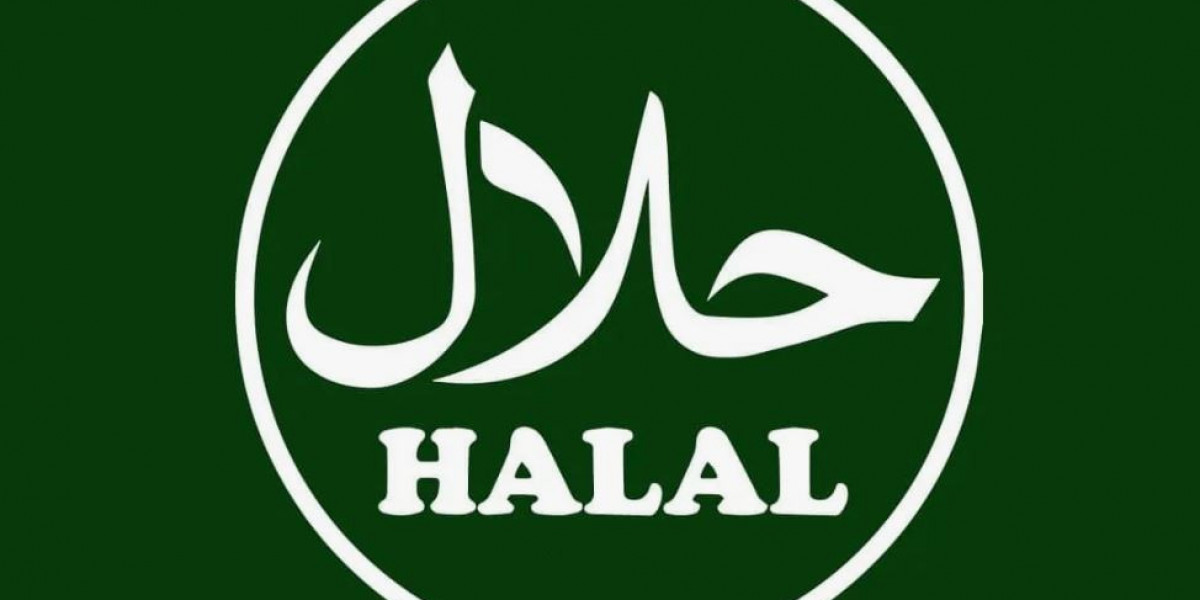Halal certification in Canada has gained significant attention over the past decade due to the growing Muslim population and the increasing demand for halal products. This certification serves as a guarantee that food, cosmetics, pharmaceuticals, and other consumer goods comply with Islamic dietary laws and ethical standards. For Muslim consumers, halal certification is a critical factor in choosing products that align with their religious beliefs. In Canada, where multiculturalism is embraced, businesses have recognized the need to cater to this important segment of the population. Halal certification provides transparency, builds trust, and ensures that products meet the strict guidelines of halal compliance. Whether you're a food manufacturer, restaurant owner, or exporter, obtaining halal certification can be a valuable asset in expanding your market reach.
Who Needs Halal Certification in Canada and Why It Matters
Halal certification in Canada is not only relevant to businesses targeting Muslim consumers but also to those engaged in international trade, particularly with Muslim-majority countries. If you are involved in food processing, meat production, hospitality, or cosmetics manufacturing, having your products certified as halal can open doors to new markets and partnerships. Many global buyers now require halal certification as part of their procurement criteria, especially in regions like the Middle East, Southeast Asia, and parts of Africa. In Canada itself, a growing number of consumers actively look for halal-certified products, even in mainstream grocery stores. The certification ensures that the entire production chain, from sourcing raw materials to packaging and distribution, adheres to Islamic laws. This level of assurance builds customer confidence and enhances brand credibility.
Steps to Obtain Halal Certification in Canada
To get halal certification in Canada, businesses need to follow a structured process that involves several key steps. The first step is selecting a recognized and reputable halal certification body. This organization will conduct an assessment of your production process, ingredients, and facility. After the initial application, the certifying body reviews documentation and may request samples or conduct site inspections. Auditors evaluate whether the practices align with halal standards, including cleanliness, segregation from non-halal items, and the sourcing of raw materials. If your operation meets all requirements, you will be issued a halal certificate valid for a specific period, often one year. Renewal typically involves follow-up inspections to ensure continued compliance. The process may vary depending on the type of product, the certifying body, and the region of export, but the fundamental principles remain the same.
Popular Halal Certification Bodies Operating in Canada
There are several halal certification bodies operating in Canada, each with its own set of procedures and global recognitions. Some of the widely known organizations include the Islamic Food and Nutrition Council of Canada (IFANCC), the Halal Monitoring Authority (HMA), and the Islamic Society of North America (ISNA) Canada. These certifying bodies are accredited by international halal organizations and often have agreements with countries that require halal certification for imports. When choosing a certification body, it is important to consider factors such as international acceptance, cost, audit processes, and customer support. Businesses aiming for export markets should select a certifier whose credentials are accepted in the target region. Certification bodies also play an educational role by offering training and guidance to companies on how to maintain halal compliance throughout their operations.
Challenges Faced During Halal Certification in Canada
Despite its many benefits, obtaining halal certification in Canada is not without challenges. One common issue is the lack of awareness among business owners about halal requirements and standards. Some may assume that halal simply means no pork or alcohol, but the guidelines are far more comprehensive. Businesses must also ensure that supply chains are halal-compliant, which can be difficult if ingredients are sourced from multiple vendors. Another challenge is the cost associated with the certification process, including application fees, audits, and renewal expenses. Additionally, there may be confusion about which certifying body to choose, as different markets recognize different certifications. To overcome these hurdles, it’s essential to engage with knowledgeable consultants or organizations that specialize in halal compliance. Doing so not only simplifies the process but also ensures that your business maintains the integrity of the halal label.
Benefits of Halal Certification for Canadian Businesses
Halal certification in Canada offers a wide array of benefits for businesses of all sizes. First and foremost, it grants access to a lucrative market of Muslim consumers both locally and internationally. Canada’s diverse population includes over one million Muslims, many of whom actively seek halal-certified products. Internationally, the global halal market is projected to exceed trillions of dollars in the coming years. Certified companies also enjoy enhanced brand reputation, as halal products are often associated with high standards of hygiene and ethical practices. Furthermore, halal certification can give businesses a competitive edge in sectors like food service, retail, and pharmaceuticals. It demonstrates a commitment to inclusivity and cultural sensitivity, which resonates with today’s socially conscious consumers. As global awareness of ethical consumption grows, halal-certified products are increasingly appealing to a broader audience, including non-Muslims.
How to Maintain Compliance After Halal Certification
Getting halal certification is just the beginning; maintaining compliance is an ongoing commitment. Businesses must implement internal controls and training programs to ensure that staff understand halal requirements and procedures. Regular audits, both scheduled and surprise, may be conducted by the certification body to verify continued adherence to standards. Documentation must be kept up-to-date, including records of ingredients, suppliers, and production processes. It is also essential to stay informed about changes in halal standards and best practices, which may evolve over time. Companies should have a designated halal compliance officer or team to oversee these responsibilities. Any changes in product formulation or suppliers must be reported to the certifying body to avoid jeopardizing the certification. Consistent compliance not only upholds the integrity of the halal label but also fosters long-term consumer trust.
Why the Future of Halal Certification in Canada Looks Promising
The demand for halal certification in Canada is expected to continue rising in the coming years. As Canada’s Muslim population grows and becomes more vocal about their dietary needs, businesses are responding by offering a wider range of halal-certified products and services. Moreover, the global emphasis on traceability, food safety, and ethical sourcing aligns well with halal principles, making the certification even more relevant. Government support for diversity and inclusion also creates a favorable environment for halal-certified businesses to thrive. Technology is playing a role too, with digital platforms making it easier to track and verify halal compliance. As awareness increases and the benefits become more evident, more Canadian businesses are likely to pursue halal certification to tap into this expanding market.
Conclusion
In conclusion, halal certification in Canada is not just a religious formality; it is a strategic business move that aligns with global trends in ethical and inclusive consumerism. From building trust with Muslim customers to accessing international markets, the advantages are substantial. While the certification process may involve effort and investment, the long-term rewards make it worthwhile. For businesses seeking reliable halal certification services, halalbureau stands out as a trusted partner committed to ensuring compliance and consumer satisfaction.








